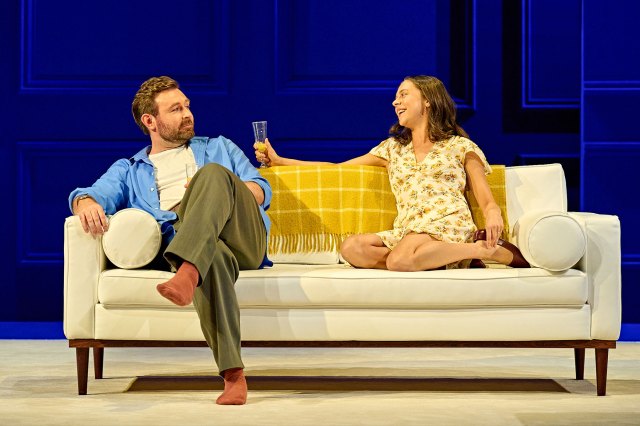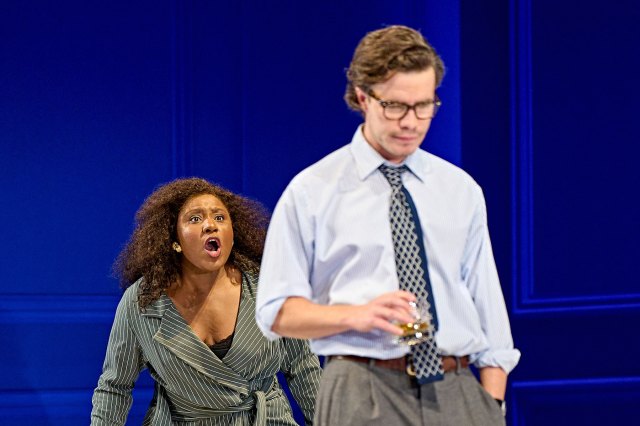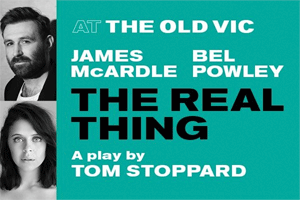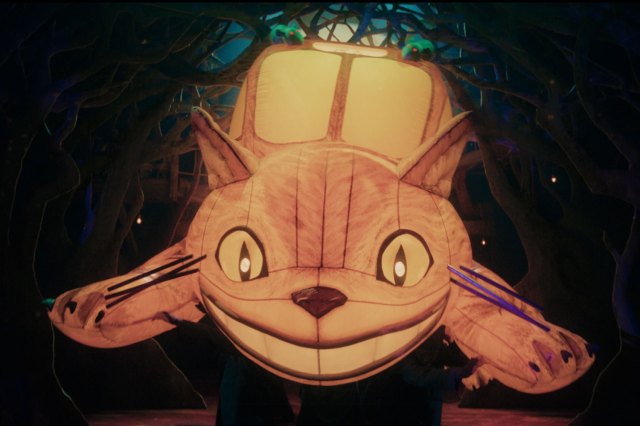
Since its premiere in 1982, The Real Thing has become one of Tom Stoppard’s most revived plays. It’s easy to see why. It retains all the whirling wit of his early work, but its subject is the most important in the world – what it means to love and be loved.
At its centre is Henry, a 40-something playwright, with whom it is hard not to think his author partly identified. Henry is in love with words and the way they work. No subject is too small not to be mansplained to death by his eloquence and brilliance. He is also in love with Annie, an actress, and leaves his wife Charlotte, also an actress, to be with her.
The fact that when the play appeared Annie was played by Felicity Kendal, the actress with whom Stoppard had an affair, and that it contains within its structure an intricate box set of plays within the play, only reinforced this frisson of autobiography.
Yet it’s also true that Stoppard’s interest here is both broader and deeper than anything that was happening in his own life. At root, he is examining not just what it means to give your love to someone else, but also the capacity of words ever to express the truth. That’s part of the purpose of a subplot in which Annie’s advocacy for Brodie, a soldier imprisoned for burning a wreath on an anti-war protest, drives a wedge between her and Henry.
He can’t write, and Henry sees that as a moral failing in a society where he worries that “there’s no philosophy that can’t be written on a T-shirt”. It’s in this context that he expounds the most famous notion in the play: that for words to fly and have impact, they have to be fashioned with the same care as a cricket bat. If they are just a lump of wood, they fall to the ground. Yet Annie reminds him “Having all the words is not what life is about.”
Such preoccupations are just as relevant now as 40 years ago, and although the trimmings of the play have dated, it remains both prescient and precise. Director Max Webster gives it a contemporary sheen by playing up the meta-theatrical elements and bringing an involved stage crew onto Peter McKintosh’s midnight-blue panelled set, with its stylised white sofas switching round to represent multiple locations.
At its heart is a sensational performance from James McArdle as Henry, fleet of foot and bright of mind, beautifully conveying both Henry’s monstrous self-satisfaction and his deep and abiding confusion about how to conduct affairs of the heart. His first wife Charlotte (Susan Wokoma, flighty and very funny) accuses him of being “the last romantic” and his belief in finding “the real thing” is simultaneously touching and delusional.

McArdle’s wit and timing keep the play’s trajectory rapid. He’s a man who is obsessed with choosing “Desert Island Discs” that will show him in a better, more sophisticated light than the singles of the ’60s by Herman’s Hermits and The Big Bopper that he truly loves. When Annie tries to convert him to the merits of classical music, he has a wonderful line imagining Beethoven like Buddy Holly dying in a plane crash at the age of 22. “The history of music would be very different,” he says. “And the history of aviation, of course.”
McArdle finds a pause between the two parts of that thought that cements the line; he is as light and deft with Stoppard’s language as he is when he dances through the wonderful, mimed scene change at the start of the second half which shows the smooth running of his life.
As Annie, Bel Powley is all angular intensity, and constant interruption as she tries to adjust her own feelings to the demands of her life. She doesn’t have the words – and Henry constantly interjects, finishing her sentences – but she has a determination and an insistence that gives her power against him. She makes their confrontations matter.
Elsewhere, Rilwan Abiola Owokoniran illuminates the stage every moment he is on it, full of vitality and energy. Karise Yansen is effective and detailed in the underwritten role of Henry’s daughter.
All in all, then, this is a sophisticated and enjoyable revival of a play that still, beneath its beautiful veneer of humour, has the heft to raise troubling and endlessly fascinating questions about the state of the human heart and how we describe it.



















